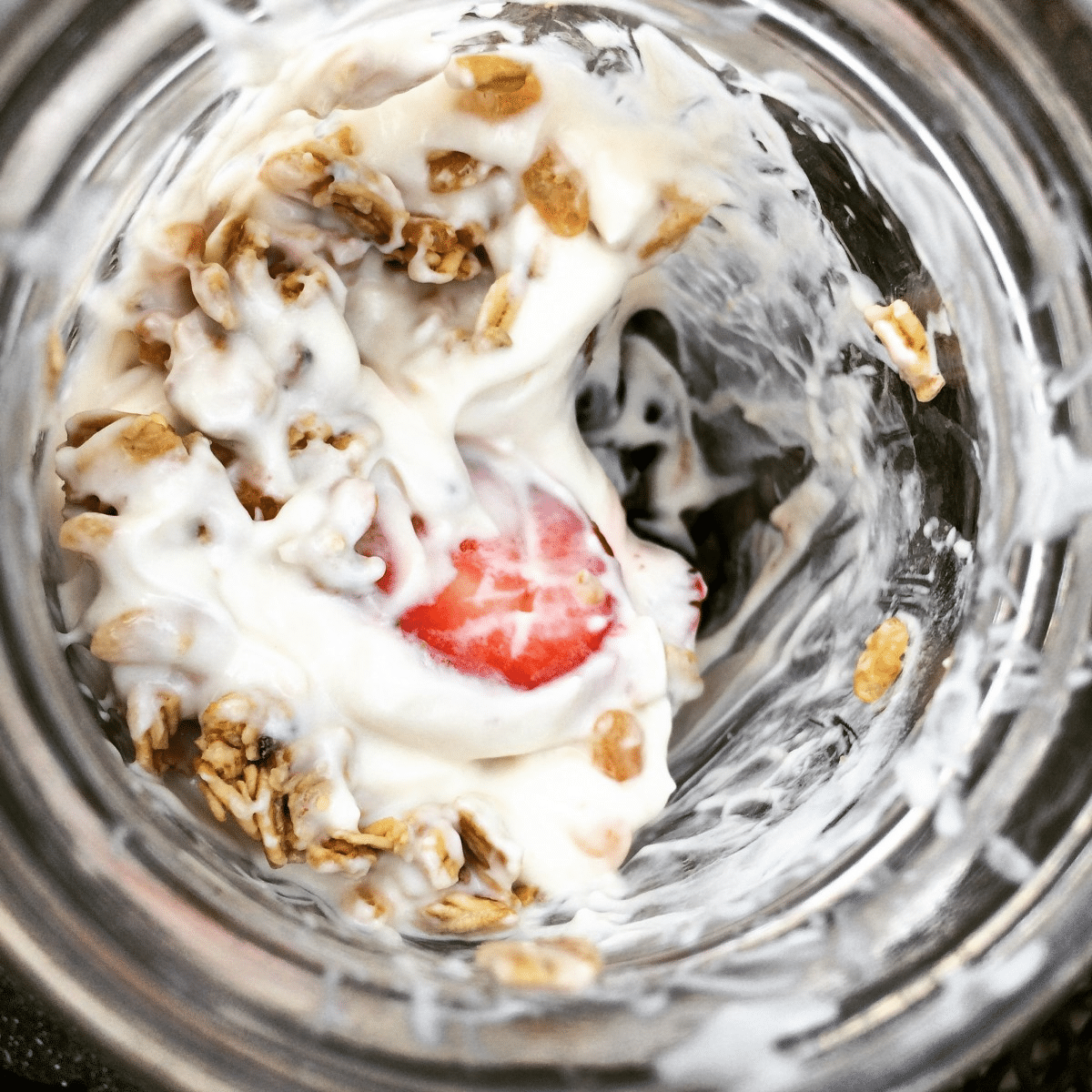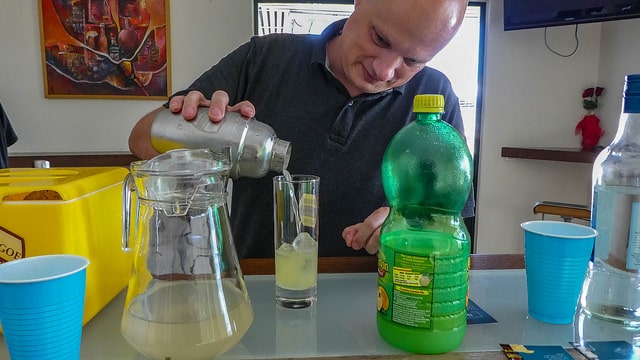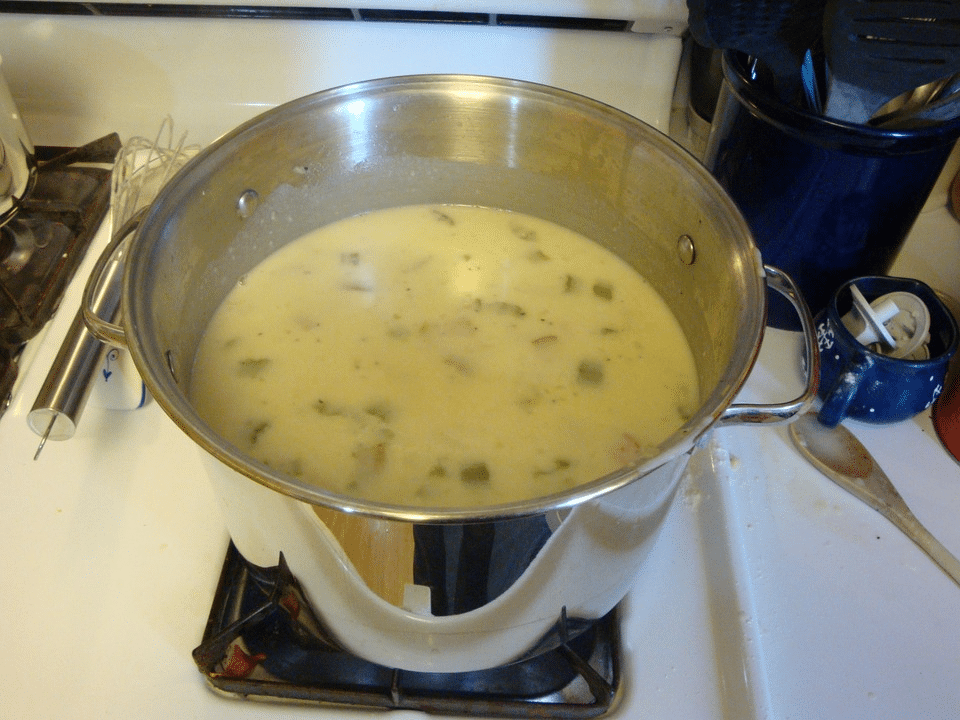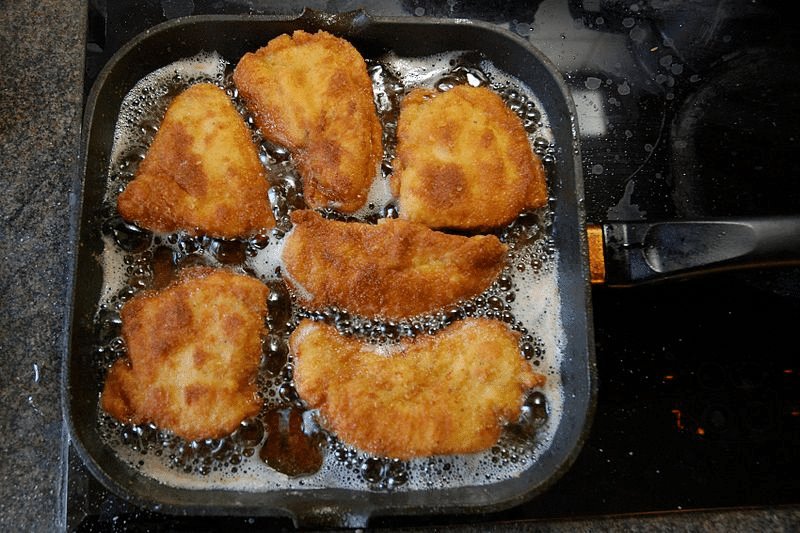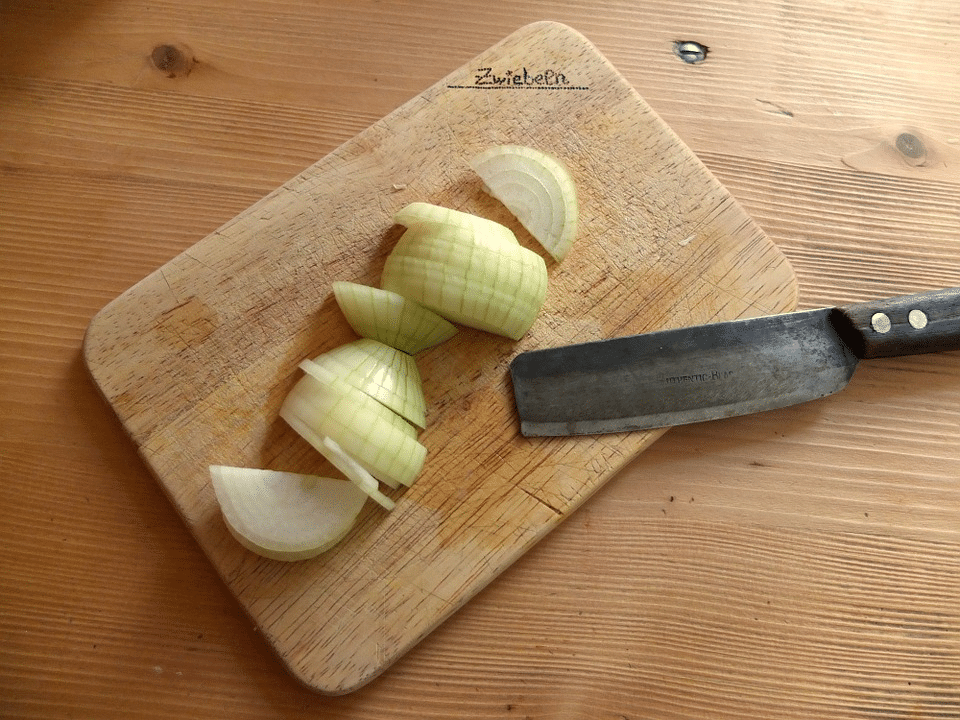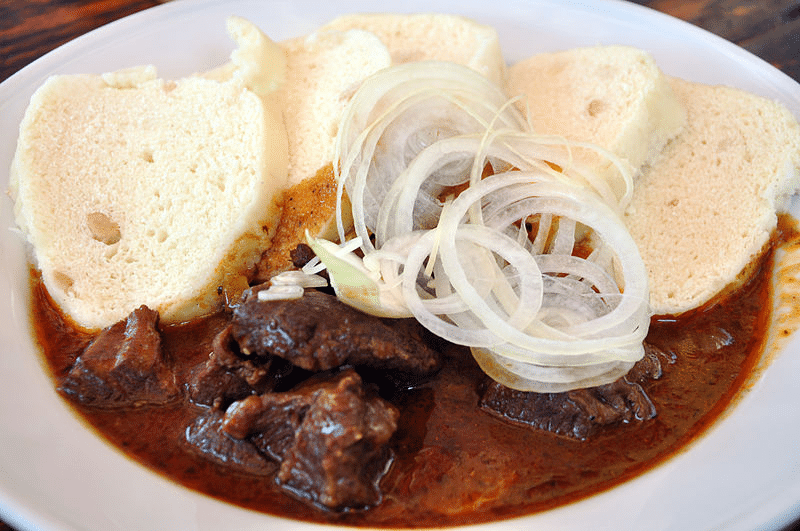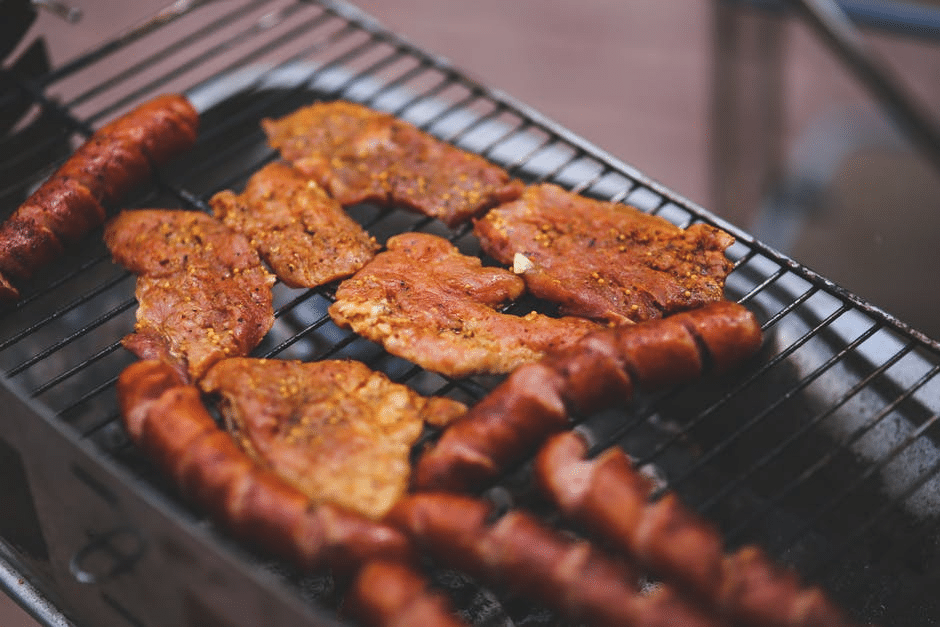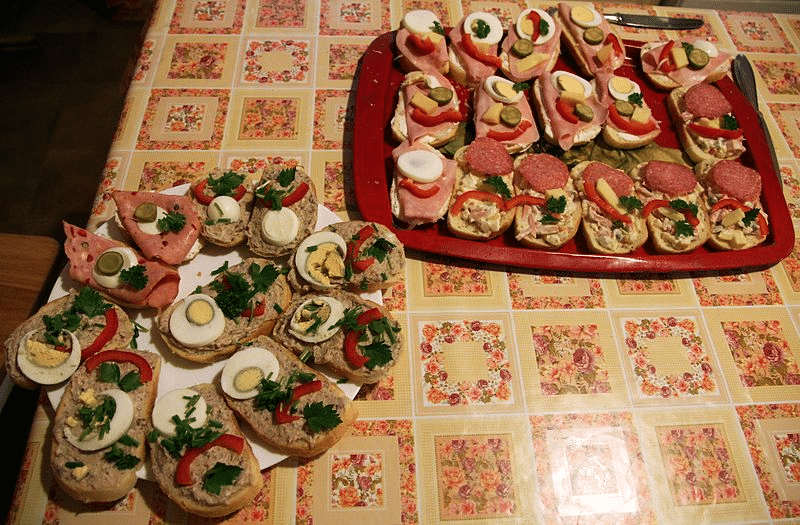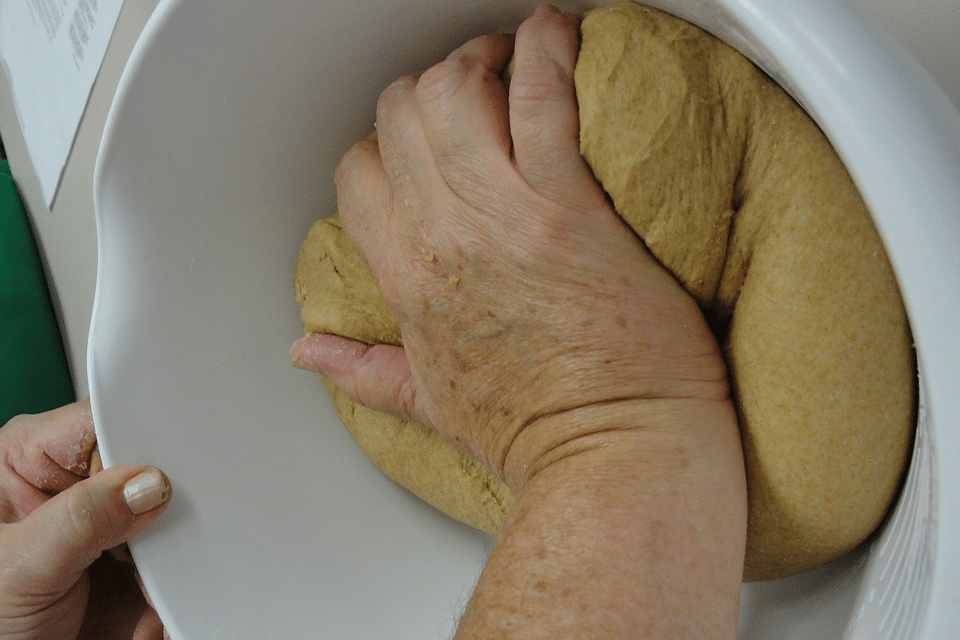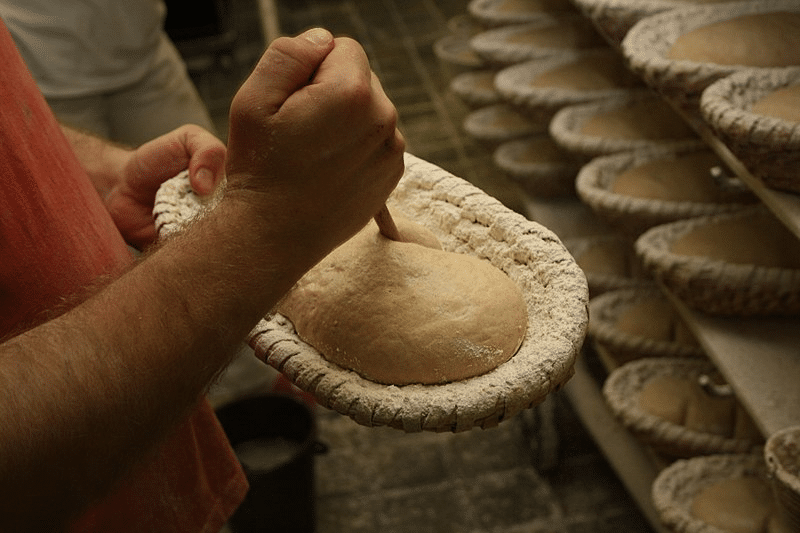3.10 – Cooking Verbs
In this unit we’re going to learn some verbs that are useful for talking about cooking. Here I’ve divided them up into groups based on their conjugation type (note – if you need a review of the endings of these types of verbs, the table heading for each verb type is a link to the original explanation):
míchat to mix
|
|
|
|
Obvykle si dám muesli a míchám ho s jogurtem. I usually have granola and mix it with jogurt. |
Ondra míchá koktejl pro Evu. Ondra is mixing a cocktail for Eva. |
krájet to cut, chop
smažit to fry
vařit to cook
|
Jana vaří polévku, protože dnes chce pořádný oběd. Jana is making soup because she wants a proper lunch today. |
Smažíme řízky na oběd. We’re frying schnitzel for lunch. |
|
|
|
|
Martina krájí cibuli, protože vaří hovězí guláš. I’m cutting up an onion because I’m cooking beef goulash. |
|
grilovat to grill
péct (peč-) to bake
připravovat to prepare
As a reminder with -e- type verbs, you need to affix the endings onto a stem. For some verbs like -ovat verbs, this stem is regular (grilovat → griluj-; přípravovat → připravuj-).
|
|
|
|
O víkendu často grilujeme. Over the weekend we often grill. |
Připravujeme chlebíčky pro všechny. We are making open-faced sandwiches for everyone.
*připravovat tends to get used for things that don’t involve cooking (i.e. with heat), so saláty, chlebíčky, etc. |
The stem for péct is peč-, so you should put the normal -e- endings onto this stem to conjugate it:
|
|
|
|
Já často peču chléb (chleba). I often bake bread. |
Pekaři pečou každý den. Bakers bake every day. |
Images used in this document come from these sources.
